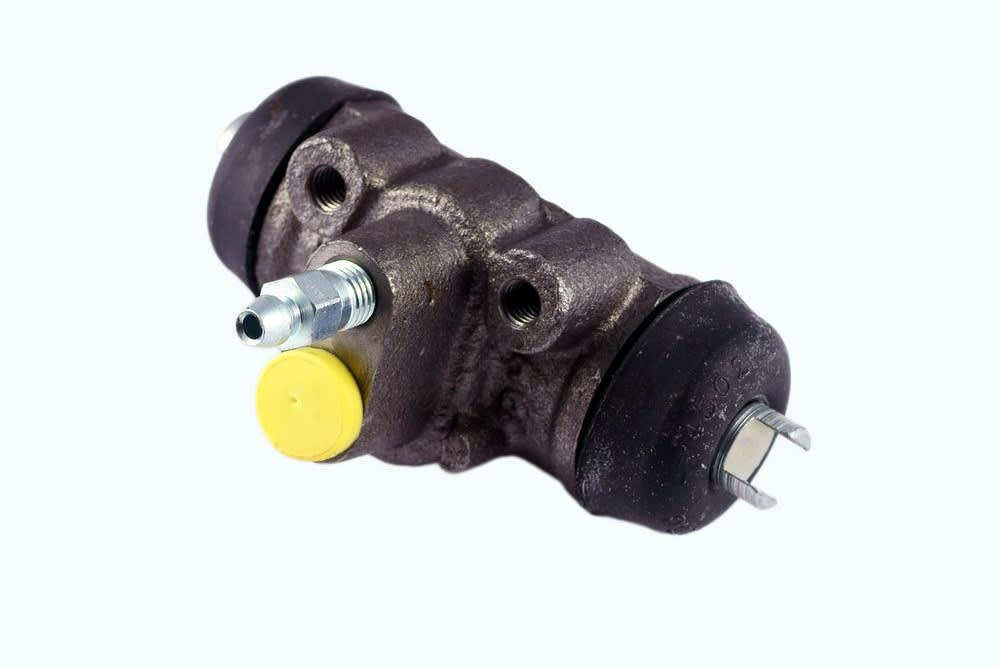

Brake wheel cylinders are a component found on modern drum brake systems. They are the hydraulic component that extends to press the brake shoes against the brake drum when the pedal is depressed. As they are a hydraulic component and subjected to the harsh conditions of braking, they can wear out over time and will eventually need to be replaced. When brake wheel cylinders do go bad, they will usually produce a few symptoms that can alert the driver that service may be required.
1. Mushy brake pedal
One of the first symptoms commonly associated with bad wheel cylinders is a mushy brake pedal. If wheel cylinders develop any sort of internal or external leak, their ability to pressurize and extend the piston may be compromised. This may result in a brake pedal that feels abnormally soft, or mushy, or a brake pedal that slowly sinks to the ground when it is depressed.
2. Poor brake response
Another symptom of bad or failing brake wheel cylinder is poor brake response. If any of the wheel cylinders fail, it may affect the pressure of the system, which will reduce the system’s ability to slow the vehicle. A vehicle with poor brake response will be harder to stop, especially in heavy braking situations.
3. Brake fluid leaks
Brake fluid leaks are another symptom of a problem with the brake wheel cylinders. If the wheel cylinders’ seals leak brake fluid will be visibly present. You may see a thin film covering the inside of the backing plate, or in more serious cases, drips or pools of brake fluid coming from the brake wheel cylinder. If a leak is large enough to be easily seen, that may also mean that the braking ability of the vehicle has probably already been compromised. Usually a quick visual inspection can reveal brake fluid leaks.
As the brake wheel cylinders are a part of the braking system, they are important to the overall safety of the vehicle. If you suspect that your wheel cylinders may be having a problem, or your vehicle is displaying any of the symptoms above, have the vehicle inspected by a professional technician, such as one from YourMechanic to determine if it is necessary to replace your brake wheel cylinder.



